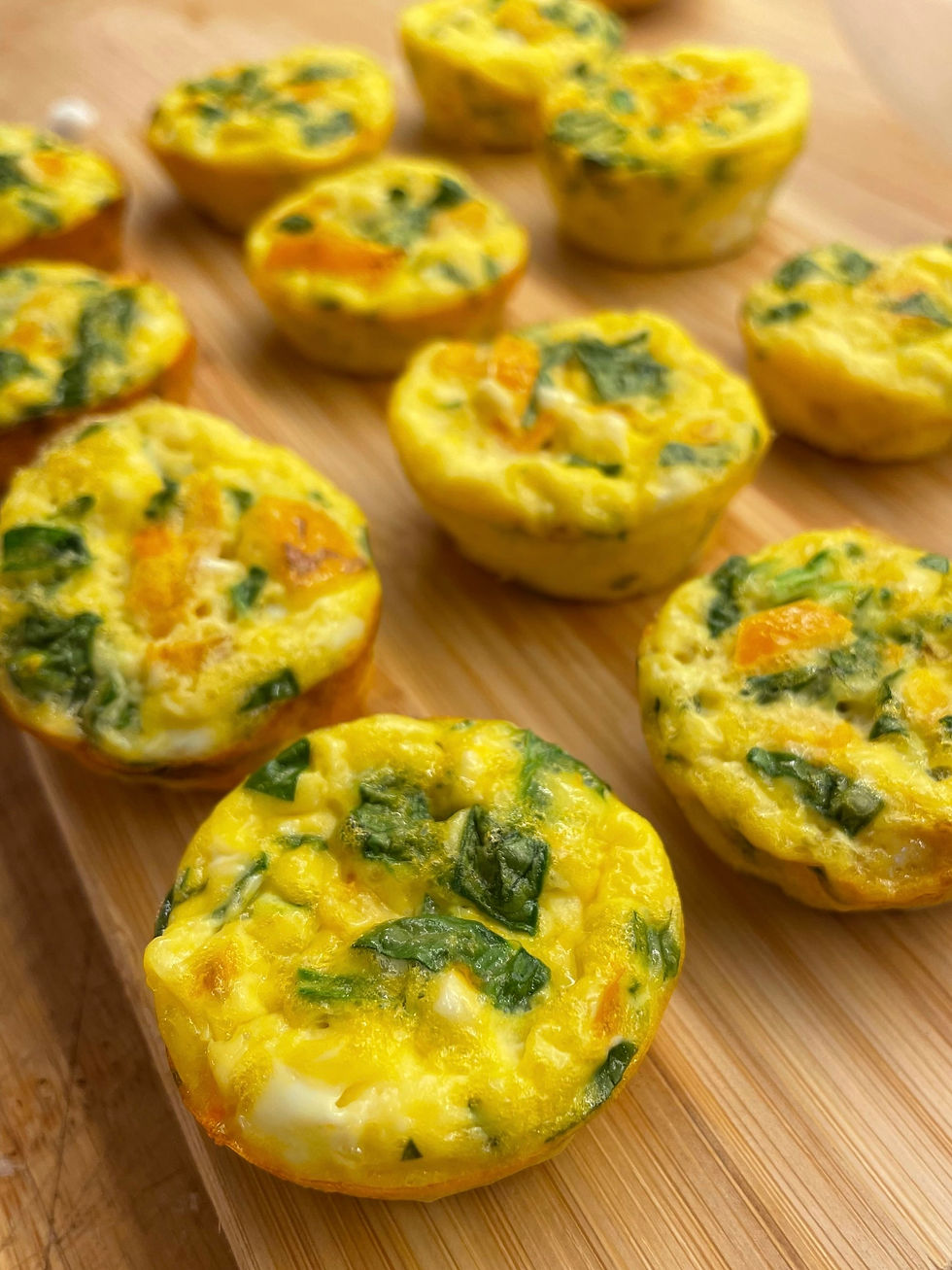6 uncommon baby foods - that deserve more attention.
- Verena Stark
- May 31, 2023
- 3 min read
Updated: Jun 1, 2023
Sauerkraut, Sardines, Coconut Cream, Liver, Spirulina

When I started thinking about the first foods for our daughter, I thought about all the great fruits and vegetables I would cook for her. And I still believe these are great foods for our babies, but looking at the nutrient density of foods, there is much more we can do. So, during our journey from milk to solids and all my learning and research over the last few years, I found my top 6 foods I recommend as amazing first foods to anyone (If you offer your baby a plant-based diet, feel free to reach out for more ideas) .
Sauerkraut: Probiotics strengthen baby's digestion and overall health.
Introducing fermented foods early will make it easy for them to acquire a taste for sour flavor. Start with introducing small bites and slowly increase the amount from feeding to feeding. Sauerkraut is a great baby-led weaning food (chop Sauerkraut in small pieces for younger babies) or use brine to add to purees.
Buy the Sauerkraut you find refrigerated (or make your own) and without vinegar. Unfortunately, the one on the shelf does not contain all the great benefits.
Sardines: Great source of heme-iron (most bioavailable iron) 6mg per 100g; sardines are low in mercury, high in omega fatty acids (essential for brain development), and calcium
Sardines are great for finger foods, you can also mash them into any puree (make sure to mash the little soft bones for the puree), or you add them to your fritters (this is a recipe I like https://www.growingtummies.com/post/sardine-quinoa-fritters).
I recommend buying wild-caught sardines in water or olive oil with no added salt.
Sardines (fish) is an allergenic food; it is recommended to introduce them between 6-12 months. Make sure not to offer too much at once, and wait 10 minutes for any immediate reaction. (for more information on how to introduce allergenic foods to your baby, please reach out to verena@growingtummies.com)
Coconut Cream: Full of healthy fats that help the gut to be healthy, high in minerals, vitamins, fiber, and amino acids. And it is an excellent source of lauric acid (similar to the composition of breastmilk - so it is a great first food), which helps against viruses and harmful bacteria.
You can add coconut cream to any puree or smoothie or even offer it on the spoon for your little one. Make sure to buy coconut cream without any additives. I like to buy full-fat coconut cream/milk in cans, BPA-fee.
Thinking about coconut as a 'nut' can be misleading, coconut is not part of the tree family, so allergies are rare.
Liver: Great source of heme-iron (most bioavailable iron), e.g., chicken liver 10mg per 100g, also very high in zinc, two of the primary nutrients that baby needs when starting solids. And many more nutrients. Liver contains high amounts of vitamin A, which babies need for their developing immune systems, eyes, and skin, yet can be toxic if consumed in excess. So offer in small amount and not every day.
I don't like the smell when cooking liver, and I know so many people who do not want to cook it, and I get it. So here are some alternatives to BLW. You can make or buy liver pate (make sure to look for unnecessary additives), use grass-fed liver capsules to sprinkle on purees or add to mince or smoothies.
Make sure to buy the highest quality liver (organic, grass-fed liver).
Spirulina: Great plant-based alternative for iron. Also high in calcium, zinc, and beta-carotene, prebiotics. Offers health benefits to practically every organ function and body function.
Buy organic spirulina powder and add it to baby's puree, sprinkle on finger food, smoothies, or pestos (start with small amounts, the flavor is quite strong). Also, starting early with spirulina/seaweed taste will increase your baby's chances of acquiring the like.
Bone Broth: Rich source of minerals, easy to digest, and boosts immunity. Excellent source of gelatin and collagen, supporting connective tissue. It also contains glucosamine and chondroitin, essential for developing baby's joints and helps digest food more efficiently. You can start with little sips of broth when starting solids, add broth to any puree or cook vegetables or any grain in broth to make food more nutrient-dense and easily digested.
This savory drink can help to diversify your baby's food palate.
The best is to prepare your own broth (here you find my chicken bone broth recipe: https://www.growingtummies.com/post/chicken-bone-broth). When buying it in-store, look for a low-sodium version, cooked for at least 12+ hours, organic chicken bones, or grass-fed beef bones.
I hope I could inspire you to offer some of these foods to your baby and probably your whole family :)




Comments